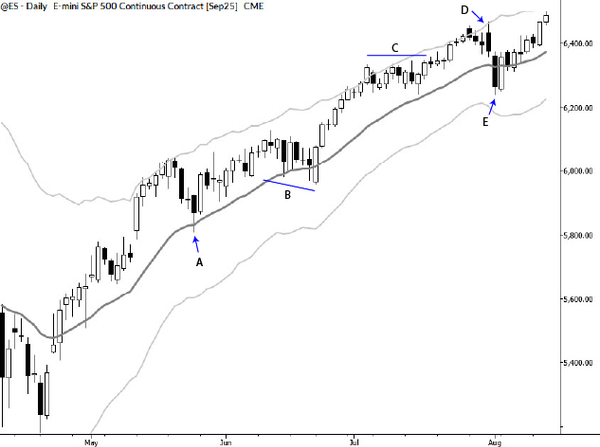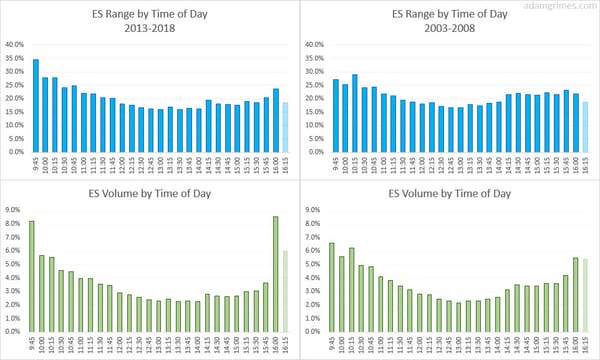Why Is Trading So Hard?
[dc]I[/dc] receive a lot of notes and messages from people who are struggling to learn to trade. One of the common threads is that many of them are discretionary traders, and they find that their decisions, made in the heat of battle, often result in the worst possible executions. How many of us have finally pulled the plug on a losing trade, only to see it immediately reverse, leaving us stopped out at almost precisely the worst possible point? How many times have we held on to a trade, waiting for it to move, finally getting frustrated and dumping it, only to see it take off in the original direction almost immediately? How many times have you thought the market was hunting for your stops? Have you ever felt that someone or something was in the market actively working against your trades? Ever felt that you could see the market so clearly until you put a trade on, and then it's like you were reading a book and someone replaced it with the same book in a language you don't speak? Of course you have, every developing trader goes through these experiences, but the question is, "why?"
In the book

, I spend a lot of time looking at the psychological underpinnings of the market. Market prices result from traders making decisions, whether on a discretionary basis or through the extension of an algorithm or trading plan, so market prices are also a reflection, a crystallization if you will, of the psychology of those market participants. Here's the thing: the market is actually designed to make you do the wrong thing at the wrong time! Or, as I said in the book:
Part of the answer lies in the nature of the market itself. What we call “the market” is actually the end result of the interactions of thousands of traders across the gamut of size, holding period, and intent. Each trader is constantly trying to gain an advantage over the others; market behavior is the sum of all of this activity, reflecting both the rational analysis and the psychological reactions of all participants. This creates an environment that has basically evolved to encourage individual traders to make mistakes. That is an important point—the market is essentially designed to cause traders to do the wrong thing at the wrong time. The market turns our cognitive tools and psychological quirks against us, making us our own enemy in the marketplace. It is not so much that the market is against us; it is that the market sets us against ourselves.
As far as I know, there is only one solution to this problem: A disciplined approach to the market that respects the realities of the marketplace. Yes, that's intentionally vague because there are many possible approaches to trading successfully, but that is the element they all have in common--Every successful methodology is consistent with the statistical tendencies of the market and requires complete discipline in practice. Without that, there can be no enduring success in trading.



